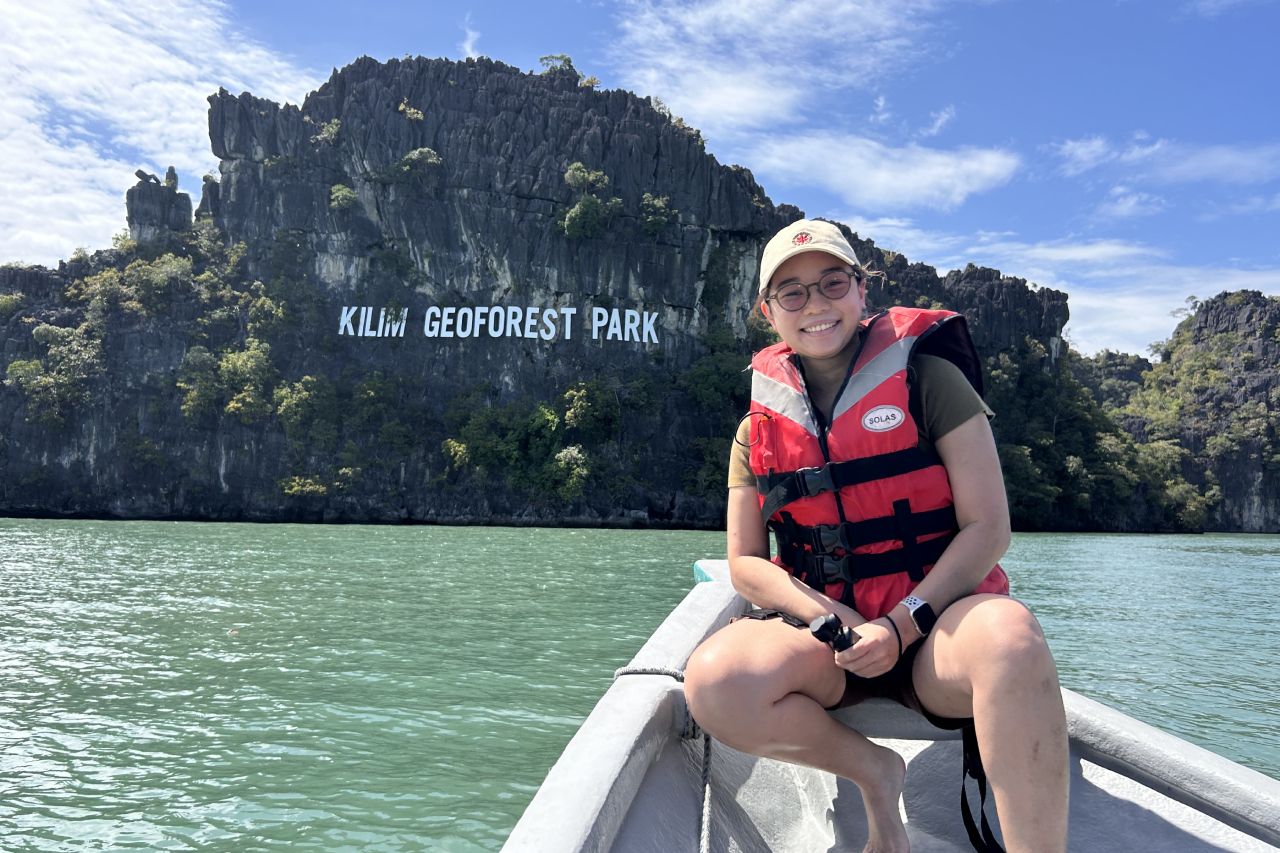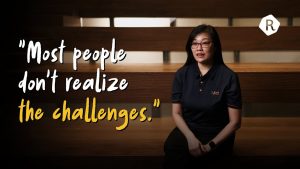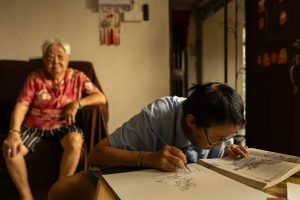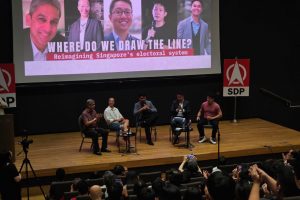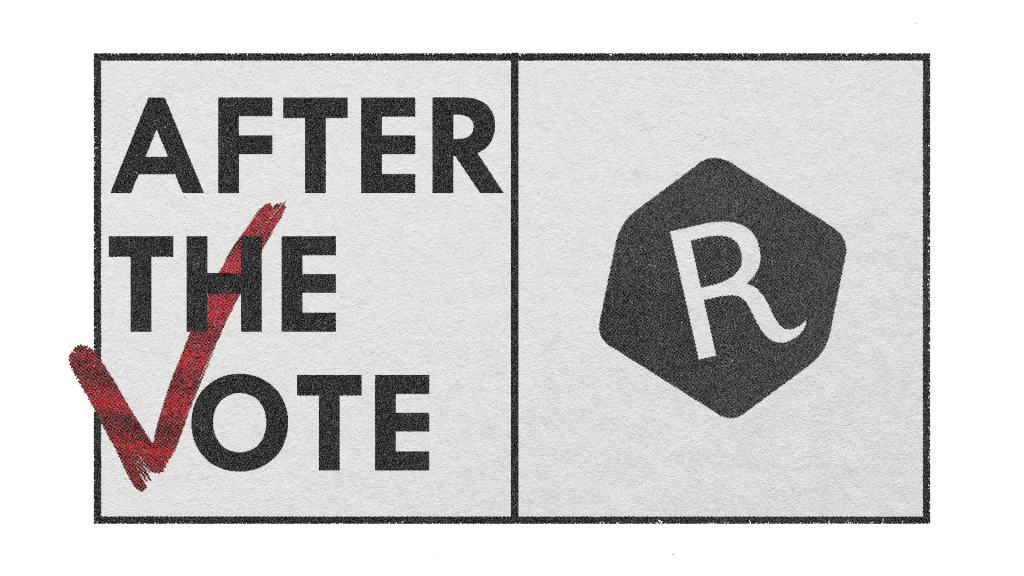
‘After the Vote‘ is a RICE Media series where Singaporeans from all walks of life share their hopes for Singapore—the changes they envision, the values they want to uphold, and the future they want to help shape.
We take a step back to explore the bigger picture: What kind of Singapore are we building beyond this election? Through these conversations, we uncover the aspirations and concerns shaping the nation in the next five years and beyond.
The views in ‘After the Vote’ are those of the interviewees and based on their experiences; they do not reflect the publication’s stance.
All images courtesy of Clydia Tan unless stated otherwise.
Living with hearing loss means navigating a world that rarely pauses to accommodate.
Clydia Tan knows this well. The 27-year-old often worried about blending in with her peers growing up, having been teased for her hearing aid that helped her manage her bilateral sensorineural hearing loss.
Although Clydia, a healthcare worker, now has a cochlear implant, it’s not a magic fix. While the device amplifies sound, it doesn’t necessarily make it clearer.
That’s why even something as simple as watching TV can still be a challenge, especially when broadcasts lack subtitles, text-to-speech captions, or sign language interpretation. The problem came into sharp focus during GE2025, when rally live streams offered little support for deaf and hard-of-hearing (HOH) viewers.
It inspired a group of SG Sign Language (SgSL) interpreters, Speech-to-text Interpreters (STTI) and other volunteers to come together to host an accessible GE results watch party.
Though some grassroots efforts—like the volunteer-led watch party—tried to fill the gap, it was a stark reminder that there’s still plenty to be done to be more inclusive of Singapore’s deaf and HOH community.
RICE is taking a longer-term view towards the Singapore we’re collectively building. And Clydia wants the needs of the deaf and HOH community to be heard.
What is one change you hope to see in Singapore by 2030 that would make life meaningfully better for people like you?
I hope to see accessibility built in for all national, public service communications and elections by default.
Beyond just media and government announcements, the deaf and HOH community faces persistent barriers in nearly every aspect of daily life. In school, especially in mainstream settings, we struggle to access verbal instruction and sound-based alerts, leaving us out of discussions, instructions, and safety information.
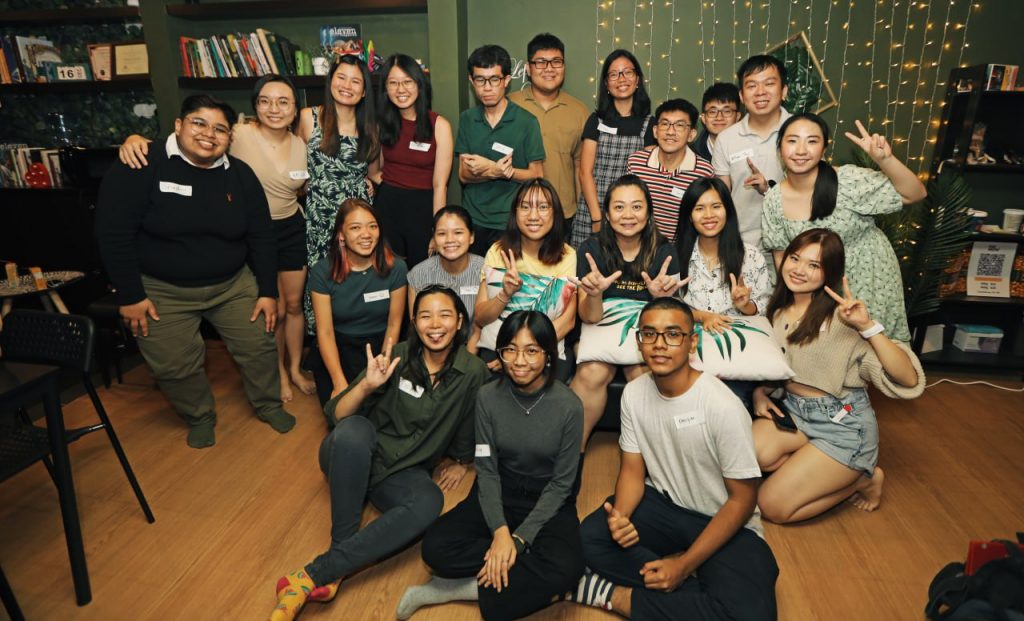
In workplaces, we miss critical details of conversations shared verbally, affecting our performance and opportunities. This slows us down and makes it harder to keep up. Not because we’re less capable, but because the environment isn’t built with us in mind.
Unfortunately, when accessibility in the form of SgSL interpretation is requested, it’s often dismissed or denied. My friend Faaiqah Alkaff, who communicates primarily in SgSL, has been told to adapt and that it’s “for (her) own good” to get used to learning and working without interpreters.
These instances aren’t just logistical gaps; they reflect deep-rooted audism, where hearing norms are seen as the default and deaf and HOH access is seen as optional and inconvenient. These assumptions create barriers that go far beyond missing announcements—they shape how we’re treated, taught, and expected to function every day.
Despite growing efforts from within the community, progress remains limited, largely due to the absence of legally binding policies and mandates.
Singapore prides itself as a meritocratic society where efforts and talents are rewarded. But true meritocracy only happens when individuals are provided equity to access a level playing field. Across the deaf and HOH community, we want to be seen as equal and capable individuals. Accessibility should not be an afterthought.
On the topic of the recent GE, how can accessibility be improved?
Within the community, deafness is a very fluid spectrum where individuals have different communication modes and access requirements. Some may prefer SgSL as it is their first language, while others may require live captioning to grasp the content as they do not sign.
For the deaf and HOH community, there were accessibility issues during the entire GE2025 period. There was no sign language interpretation and speech-to-text interpretation during live news broadcasts, the televised roundtable discussion, and most importantly, during the live reporting of the results.
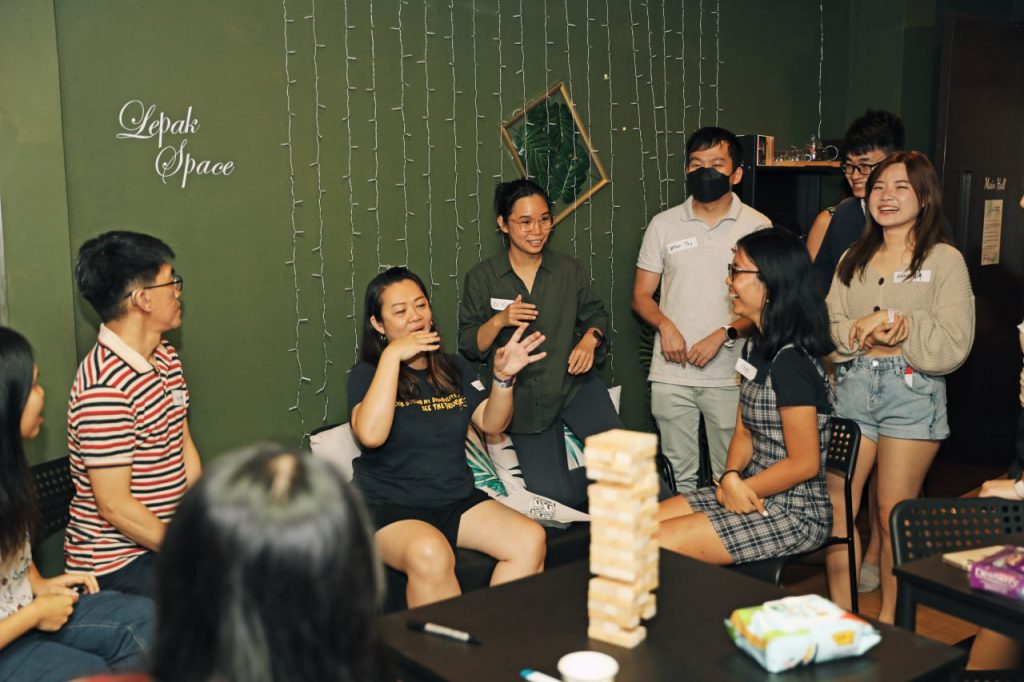
It was only through a team of volunteers who stepped up to organise the accessible watch party that the deaf and HOH community were able to participate fully.
While appreciated, voluntary interpretation should not be encouraged as a norm. Each interpreting session demands a high level of cognitive and emotional involvement. Interpreting— especially in a high-stakes situation where accuracy is key—requires simultaneous processing, cultural mediation, and intense mental agility. Ideally, interpreters’ time should be compensated.
Accessibility should be made a standard in elections and all public service announcements. Deaf and HOH individuals deserve to be included in the GE2025 process so that they can understand what is being discussed and make an informed decision.
Being excluded from parts of GE2025 feels like standing outside a glass window, watching a family gathering. Everyone’s laughing, talking, sharing moments—but we’re on the other side. We see mouths moving, fragments of expressions, wisps of conversations that pass too fast to catch. What we’re left with are crumbs of words that don’t quite make sense.
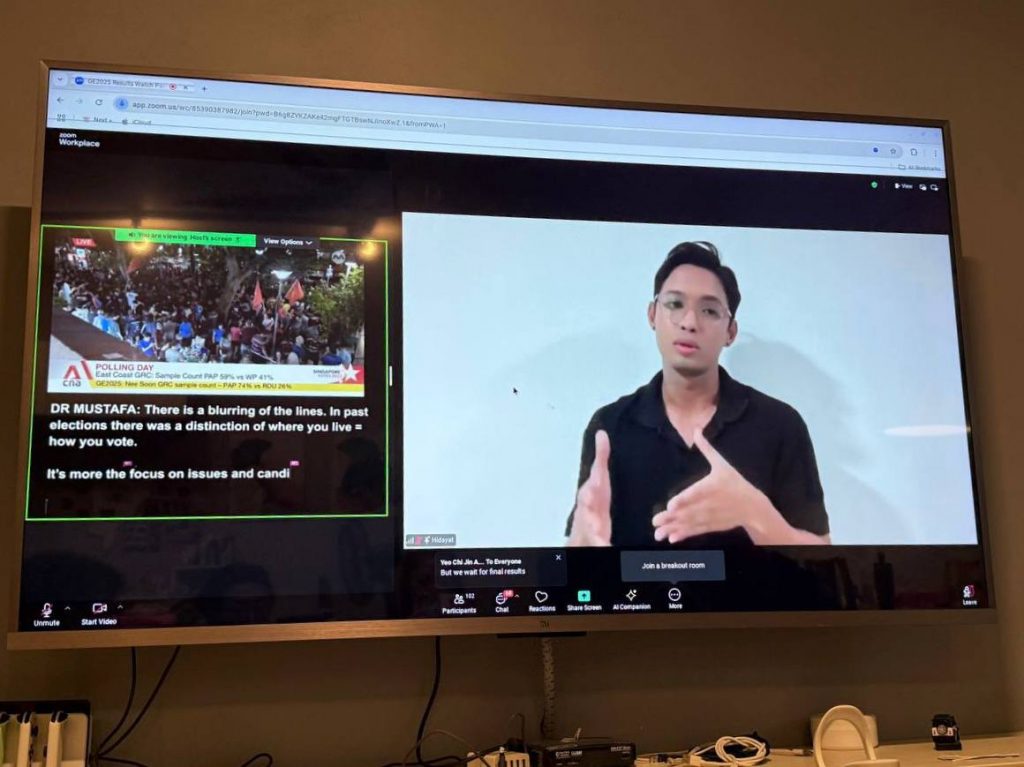
It’s disheartening to be left out of something that’s meant to belong to all Singaporeans. And yet, being excluded from conversations has become so familiar and ordinary that it barely surprises us anymore.
That is the quiet ache we carry.
What’s a challenge Singapore must overcome in the next six years to stay a place where people want to live and thrive?
While Singapore pushes ahead, the challenge is to ensure no one gets left behind, especially for deaf and HOH individuals who have various access needs, a lower income, or are in less traditional pathways.
In a rapidly ageing society, Singaporeans must understand that disability is inevitable as ageing increases the risk of functional decline. By 2030, one in every four Singaporeans will be aged 65 or older. The number of disabled individuals will continue to rise.
Among elderly Singaporeans, hearing loss is one of the most common late-acquired disabilities. It’s also associated with medical comorbidities. Seniors are more likely to fall through the gaps as they struggle to accept and make sense of their new reality.
We must shift our mindset from “this will not happen to me” to acknowledging that disability will ultimately happen to everyone—regardless of race, religion, or age—in some form or another.
When more people adopt this mindset, we can work towards more universal solutions where everyone benefits from accessibility. Planning for accessibility is not a charity—it is future-proofing our society and ensuring no one falls between the gaps.
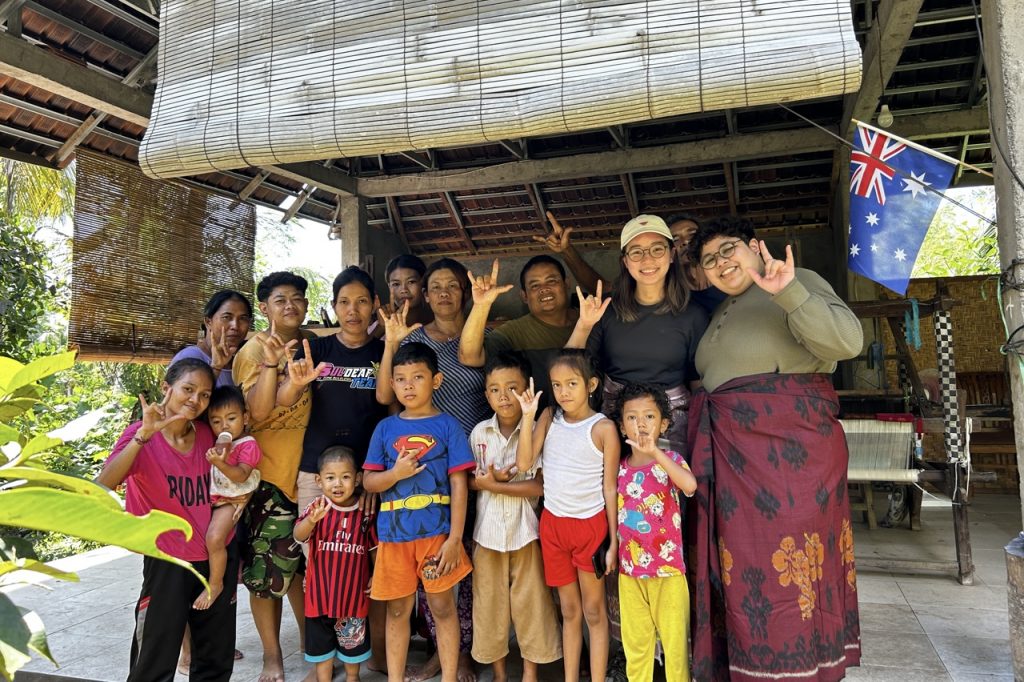
A society that embraces inclusion now will be a better, safer, and more resilient place for everyone—young, old, disabled, or not-yet-disabled.
If you could introduce a new national priority for Singapore, what would it be, and why?
Mandate SgSL and live captioning across all public communications, including government briefings, and messages on healthcare, education, elections and emergencies.
Having this official recognition will also allow for a better investment to train and sustain a professional interpreter workforce. This will improve deaf and HOH individuals’ access to SgSL and STTI.
We live in a hearing-centric world where access to communication, opportunities and participation are designed for hearing individuals. In the absence of a mandated accessibility framework, employers are not obligated or held accountable to provide reasonable accommodations for deaf and HOH individuals.
Without access, we’re constantly playing catch-up. Whether it’s instructions, meetings, or spontaneous conversations, we’re often left trying to piece together fragments because full access simply wasn’t there.
This daily strain of self-advocacy, of having to work doubly hard just to be seen as equal, keeps us in survival mode. We’re managing fatigue, exclusion, and misperceptions about our capabilities—not because we lack skill, but because we lack access. We’re not falling behind because we can’t keep up, but because we’re not being given a fair starting point. The system was never built with us in mind.
If we believe every voice counts, then our systems must be designed with every citizen in mind. Inclusion cannot live only in speeches. It must live in policies, in practices, and in planning.
What small shift—policy or mindset—could make a big difference in the daily lives of your community?
Since April 2020, the Ministry of Digital Development and Information has required TV broadcasts “of significant national and public interest” to be accompanied by SgSL.
However, some GE2025 speeches were interpreted, but some were not. During the Covid era, SgSL interpretation was available in the earlier months of updates, but subsequent press briefings that were streamed live did not have SgSL interpretation or live captioning.
SgSL services and live captioning are not expensive. Perhaps more—or even all—broadcasts that are of interest to the public can be included in the future.
Singapore moves fast. What’s one thing we need to slow down for?
Just like my good friend Faaiqah Alkaff, a Deaf artist, said, we need to slow down and think about accessibility first. (Deaf, with a capital D, refers to those with hearing loss who prefer to communicate with SgSL, and identify as a member of the Deaf community).
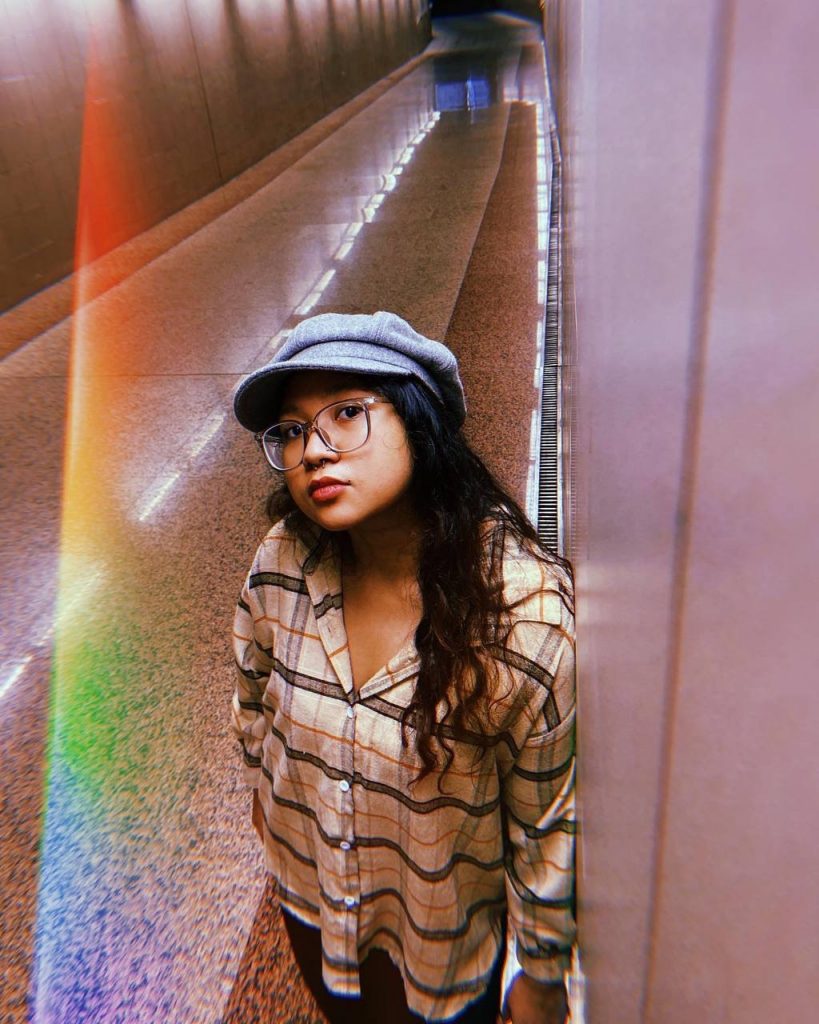
Before launching a programme, building a space, or running an event, ask: Is this accessible for everyone?
Slowing down to include accessibility from the beginning means fewer barriers later—and a more inclusive society where no one is left behind.
What’s one thing about Singapore you’d want to protect for the future?
Speaking with various individuals who had volunteered or were involved in the accessible GE2025 watch party, we had a common consensus that we want to protect the deaf and HOH community’s accessibility rights.
In our attempt to become a more inclusive society, accessibility cannot be an afterthought.
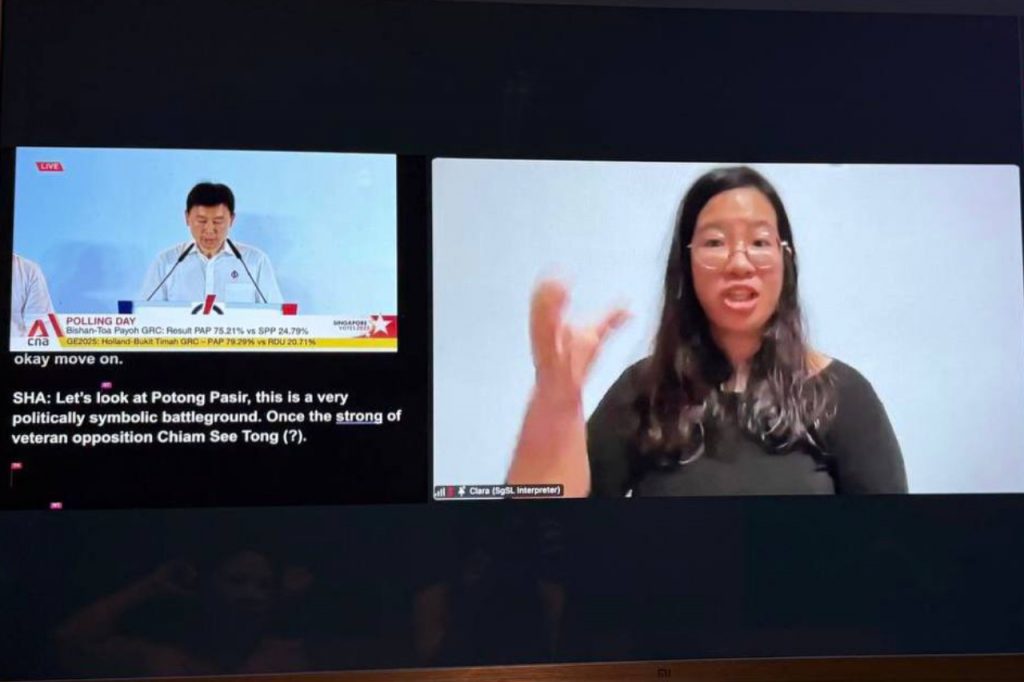
We should not expect access gaps to be addressed by community organisations. Rather, when addressing access gaps on a systemic level and providing access rights to the deaf and HOH community, it sends a message that deaf and HOH Singaporeans are part of the national conversations.
This kind of visibility can inspire change, prompting greater awareness and responsibility from those in power. It can be a quiet but powerful form of advocacy that reflects a commitment to equity.
In 2030, what kind of Singapore would you be proud to call home?
I would be delusional if I expect everything we are calling for to happen by 2030. Enacting meaningful change may take years, but I’m not despondent about what lies ahead.
It is encouraging to see more visible representation coming up in the media streams, and with it, the push for access continues. If you ask me, my ideal Singapore, where I am proud to call home, would be a society where every voice matters, regardless of how it sounds or what it looks like.
A society where individuals who communicate differently are treated as equals and public policies are co-created with those who will benefit from them. A place where we define progress not by GDP or global rankings. Rather, progress should be defined by how we treat marginalised communities, and whether the poorest, most silenced, or most overlooked are given dignity, voice, and a future.
I hope Singapore becomes a country where no one has to fight for basic access because it’s already built in.
I would like to thank Faaiqah Alkaff, a Deaf artist and Deaf Interpreter, for offering her perspectives for this article. She is passionate about promoting Deaf Culture and accessibility in the arts scene.
I would also like to take the opportunity to thank the people who made the accessible GE2025 watch party possible, standing in solidarity with us during the time when we needed access most.
Admin: Nix, Daniel, Evaline, Shawn, Jonathan, Clara, Hidayat.
SgSL interpreters: Christalle, Clara, Hidayat, Azzam, Shawn, Jonathan, Rashidah, Daniel
Speech-to-text interpreters: Yuki, Natalie Wan Ting, Jennifer, Charlotte, Yue Hwee, Eelin, Alice, Grace, Hanna, Clara, Daniel, Jonathan, Evelyn, Hidayat.

